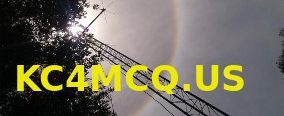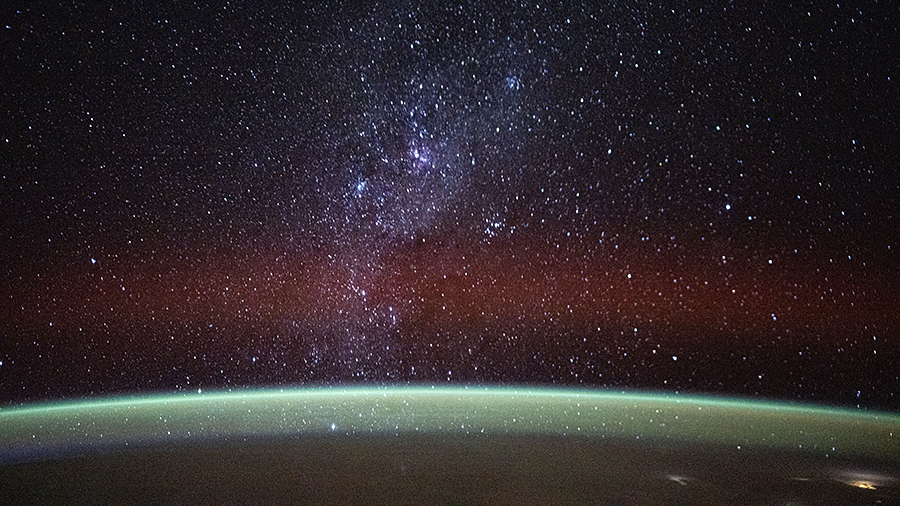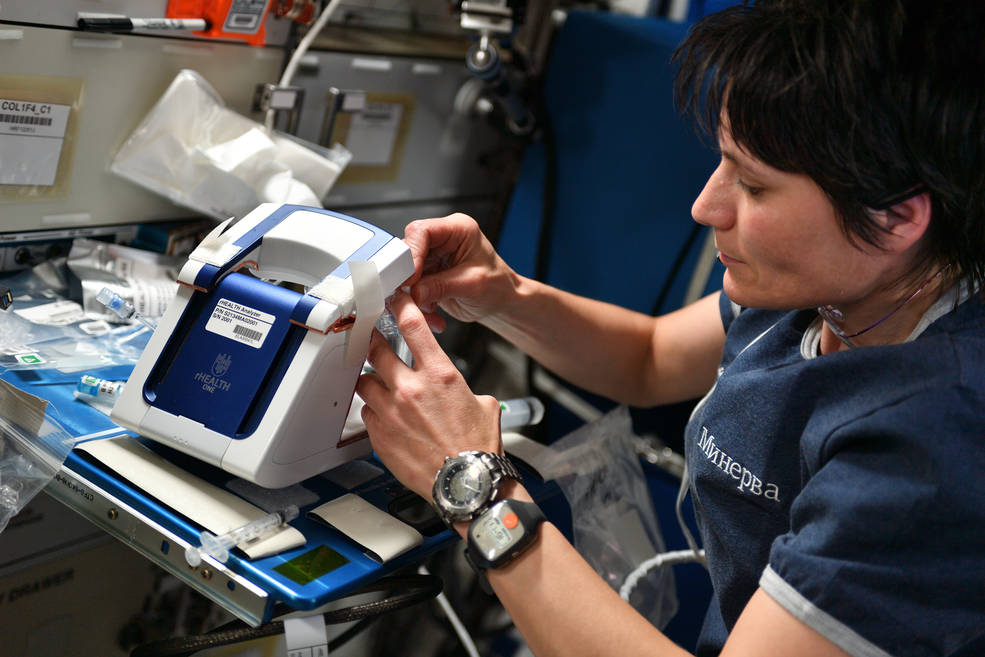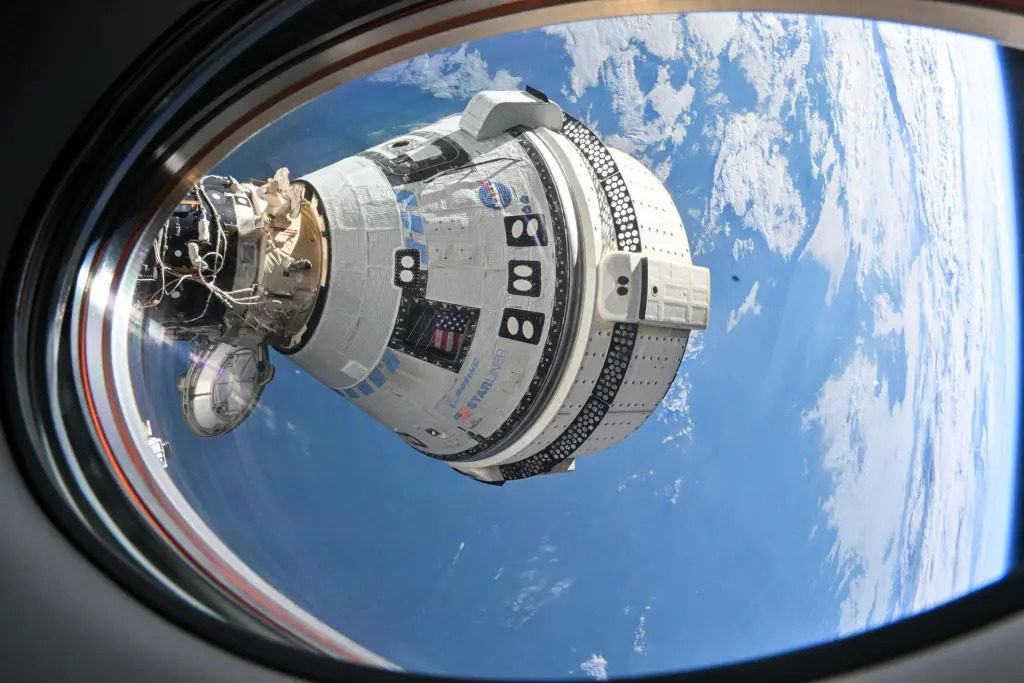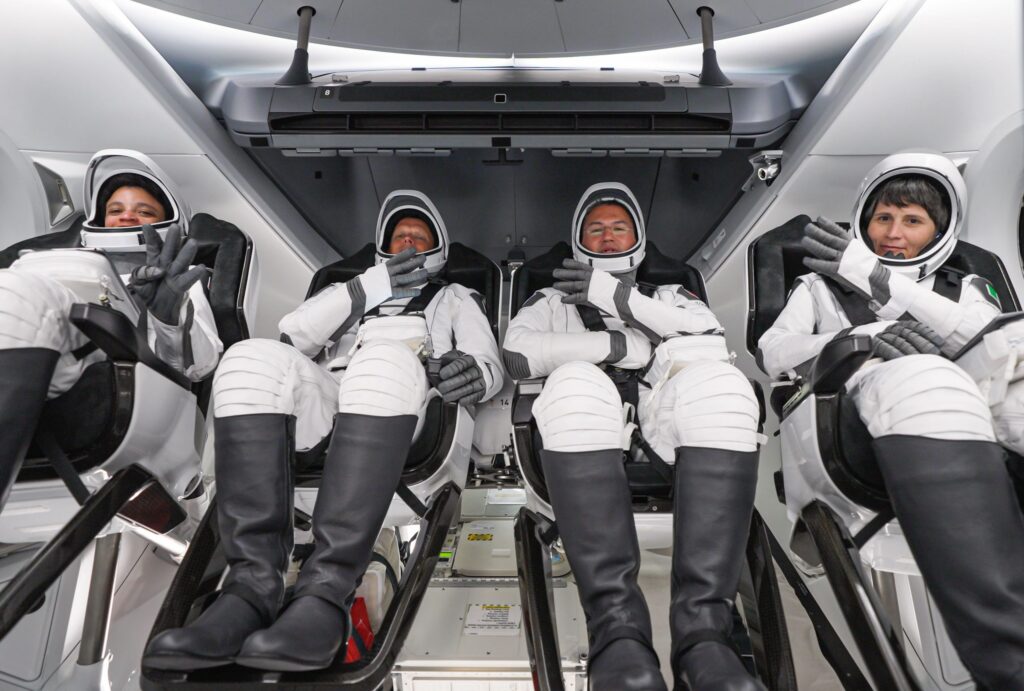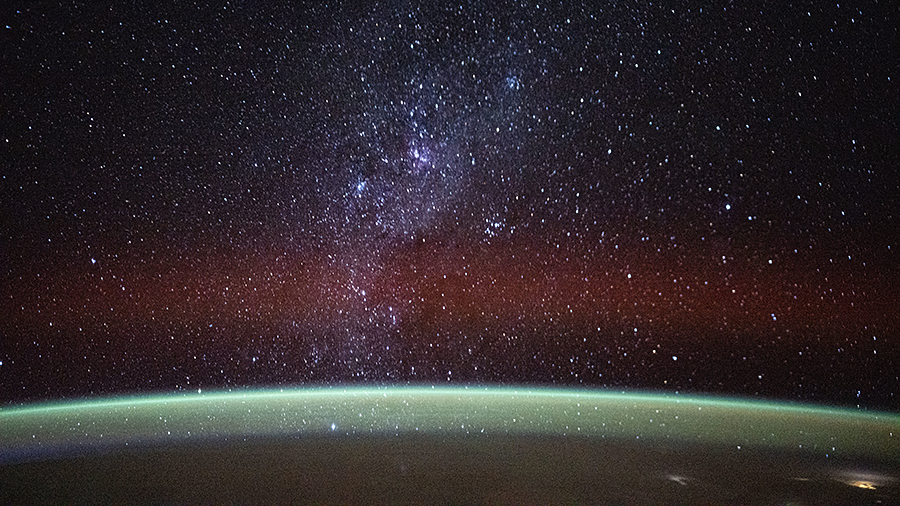
The Expedition 72 crew explored new technologies on Friday including life support systems supported by photosynthesis, capturing satellites with robots, and cold welding in microgravity. The International Space Station residents also continued checking out spacesuits while keeping up standard lab maintenance tasks at the end of the week.
Using micro-algae to remove carbon dioxide, produce oxygen, and create food in the spacecraft environment is an important test for NASA as it plans longer human missions to the Moon, Mars, and beyond. NASA Flight Engineer Nick Hague worked in the Columbus laboratory module servicing samples of the Arthrospira C micro-algae for incubation and analysis. Scientists will expose the radiation-resistant samples to different light intensities while monitoring their cell growth and oxygen production. Results may advance life support systems and fresh food production in space.
Engineers are studying how satellites interact in close proximity with each other to learn how to capture space objects for servicing or removal. NASA Commander Suni Williams checked out the Astrobee robotic free-flyer in the Kibo laboratory module and installed tentacle-like arms containing gecko-like adhesive pads to demonstrate satellite capture techniques. Engineers on the ground then remotely-controlled the cube-shaped, toaster-sized robotic assistant testing its ability to conduct docking maneuvers and capture free-flying objects. Development of this robotic technology may increase the life span of satellites and enable the removal of space debris.
NASA Flight Engineers Don Pettit and Butch Wilmore worked on installing new scientific hardware to explore materials exposed to space radiation and test a spacecraft repair technique. Pettit set up external research gear inside Kibo that will be placed in the vacuum of space to observe how a variety of materials react to the extreme thermal environment, different types of radiation, micrometeoroids, and more to promote the space industry. Wilmore installed the Nanolab Astrobeat space repair experiment hardware in the Destiny laboratory module that will explore a cold-welding technique to repair micrometeoroid impacts to spacecraft.
Roscosmos Flight Engineers Alexey Ovchinin and Ivan Vagner were back on spacesuit duty Friday conducting leak checks, valve tests, and servicing the suits’ life support components. The duo is readying the suits for a spacewalk planned in mid-December. Cosmonaut Aleksandr Gorbunov primarily spent his day on orbital plumbing tasks before wrapping up his shift on computer maintenance in the Nauka science module.
Learn more about station activities by following the space station blog, @space_station and @ISS_Research on X, as well as the ISS Facebook and ISS Instagram accounts.
Get the latest from NASA delivered every week. Subscribe here: www.nasa.gov/subscribe
